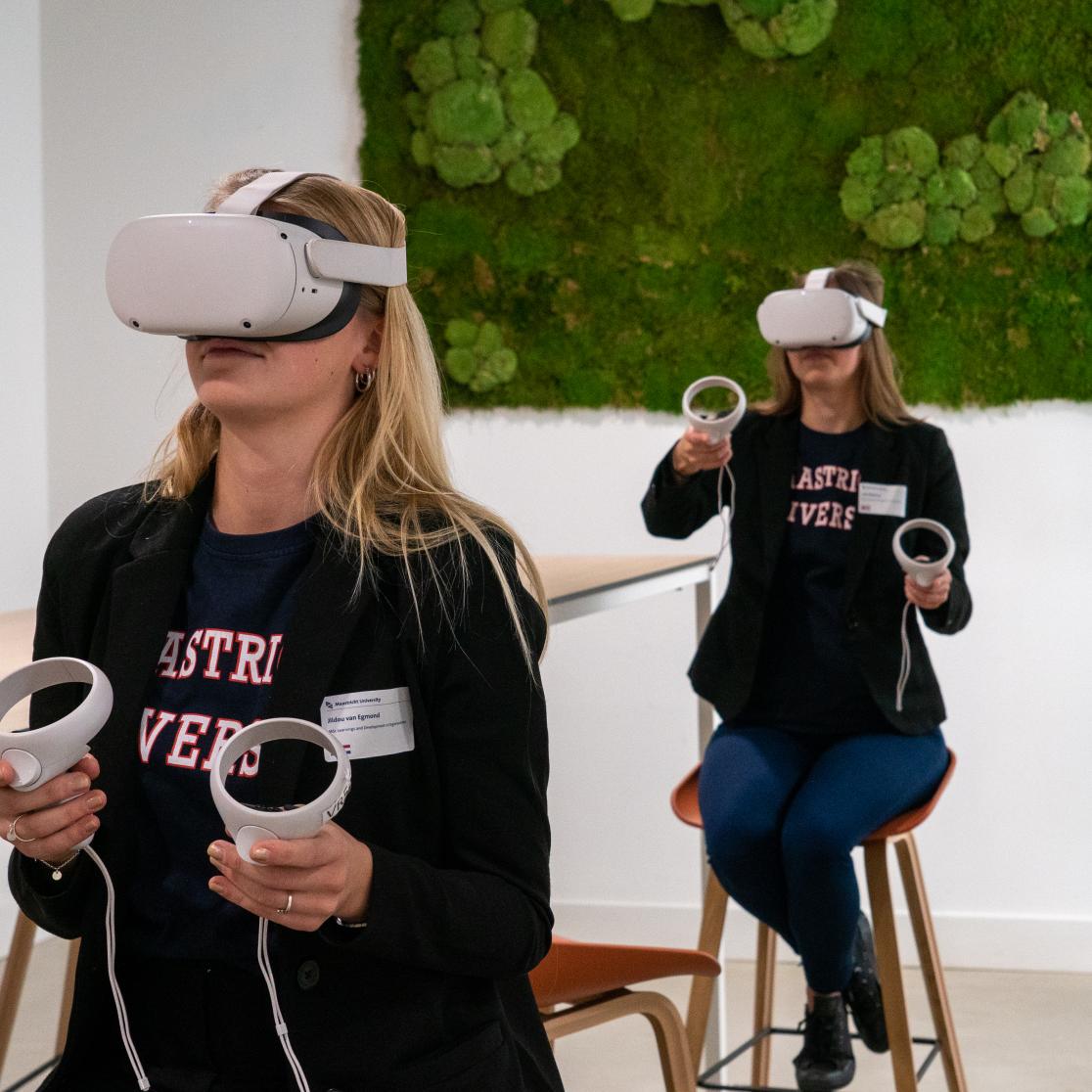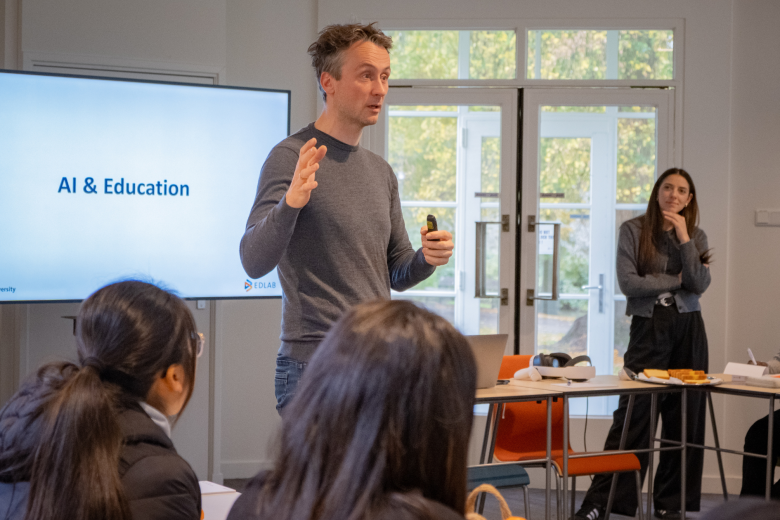Just released! VR-enhanced PBL educational report and guidelines
The VR-enhanced PBL project report produced by EDLAB and DEXLab explores the benefits of integrating VR technology into PBL classrooms.
EDLAB and VR/AR expertise centre DEXLab (SBE) collaborated on a project exploring 'VR-enhanced PBL'. Their goal was to assess how VR technology could enhance Problem-Based Learning (PBL) formats, supporting its principles of constructive, contextual, collaborative, and self-directed learning.
This joint effort concluded in April with the release of a detailed report, available for free download, complemented with practical guidelines for educators interested in incorporating VR into their teaching practices. The implementation guidelines can be found within the report but can also be downloaded separately.
Key takeaways
- The report highlights the value of faculty tech lab support and emphasises VR as a complementary tool within the CCCS principles of PBL.
- The report offers a balanced perspective on where VR technology can effectively support PBL and where its limitations lie.
UM VR network
The VR-enhanced PBL project led to the establishment of the UM VR network, connecting UM tech labs and VR specialists. DEXLab will chair the first year of the VR network that will officially kick off in June 2024.
Project report and guidelines
The VR-enhanced PBL project report, produced in April 2024 by EDLAB and DEXLab, explores the benefits of integrating VR technology into PBL classrooms.
Based on pilot projects across various UM faculties, the report presents a comprehensive framework for implementation. It also explores specific activities, such as the use of VR apps for presentation skills training and 360-degree videos.
It shows how VR can enhance the PBL experience by offering a fresh and engaging approach to learning. Additionally, a practical guide provides instructions for teaching staff to implement VR in their classrooms, covering both didactic and technical aspects.
The report is freely accessible online (DOI) and for download.
As part of the VR-enhanced PBL project, faculties ran several pilots with VR in existing courses. With the help of VR glasses provided by EDLAB, teaching staff used immersive scenarios to train professional skills and offer real-life work/learning experiences through 360° videos.

Contact
For more information, please contact the project leaders, Roberta di Palma (SBE) and Walter Jansen (EDLAB).
Also read
-
Teacher Information Points at UM
UM faculties now host Teacher Information Points (TIPs) that offer local, “just-in-time” and on-demand support for teaching staff. The aim is simple: to provide help that is closely connected to day-to-day teaching practice.
-
UWC Maastricht students get a taste of education innovation at EDLAB
On 21 October 2025, EDLAB hosted students from United World College Maastricht for the second year in a row, as part of their Youth Social Entrepreneurship programme.
-
Warming up the classroom: music, mindfulness, and reflection in PBL
Athletes must warm up and concentrate before any performance. Why, then, do we expect our students to instantly become active when they enter a Problem-Based Learning (PBL) session?